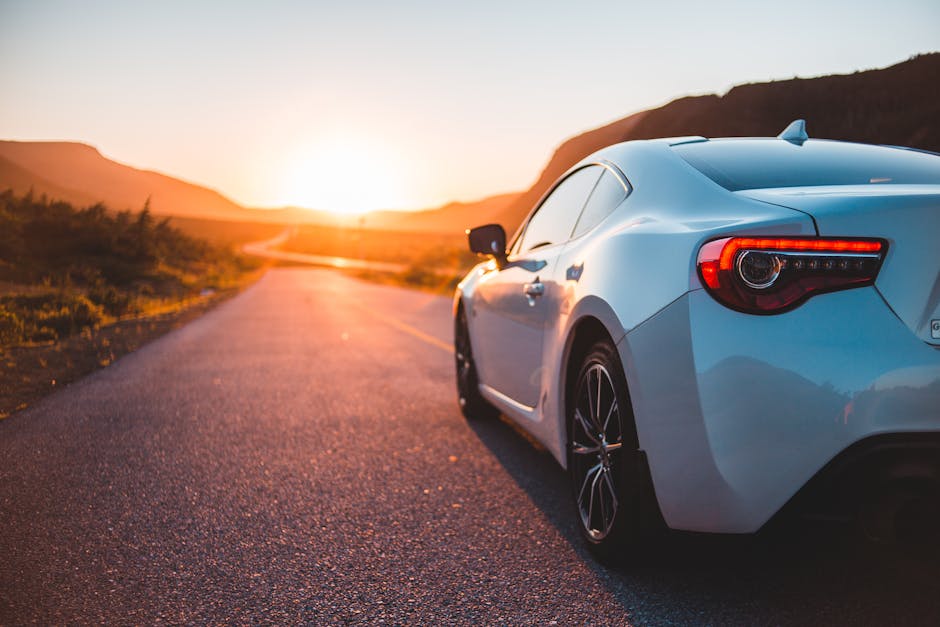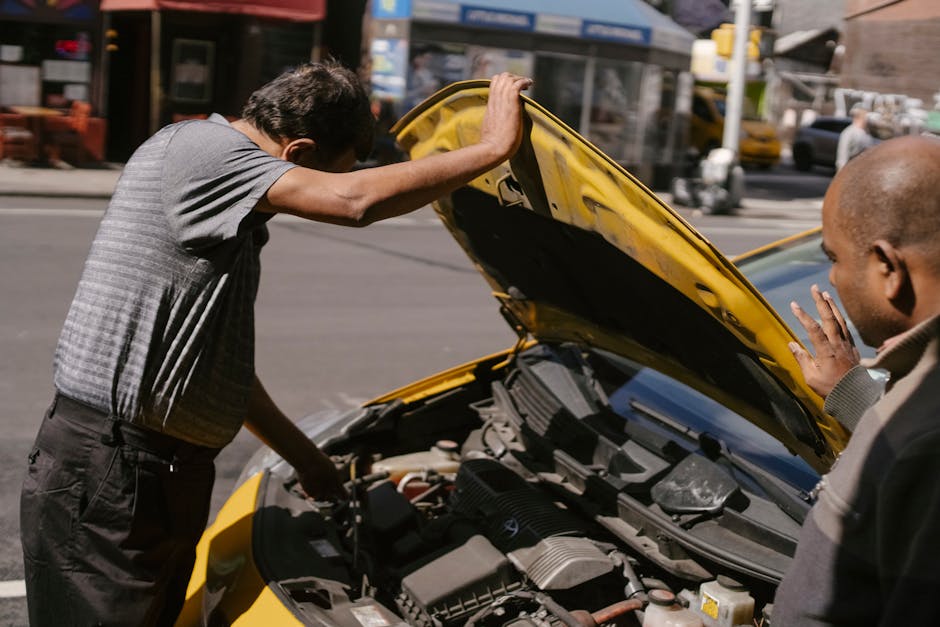10 Essential Road Trip Planning Tips From The Experts
Road trips offer an exhilarating sense of freedom and adventure, allowing us to explore new destinations at our own pace. However, without proper planning, road trips can quickly turn into chaotic and stressful experiences. To ensure a smooth and enjoyable journey, it is essential to rely on the expertise of seasoned travellers who have mastered the art of road trip planning.
In this article, we present 10 essential road trip planning tips from the experts. By juxtaposing the thrill of spontaneity with the need for meticulous preparation, these tips will empower you to take control of your road trip experience. From setting clear goals and objectives to choosing the right route and destinations, each tip provides valuable insight into optimising your travel adventure.
Additionally, we will delve into practical advice on packing efficiently while ensuring safety and maintenance for your vehicle. We will also discuss how to plan accommodations and meals so that you can fully immerse yourself in the joy of exploration while maintaining comfort and sustenance along the way.
Whether you are a seasoned traveller or embarking on your first road trip, these expert tips will equip you with invaluable knowledge to make your journey unforgettable. So buckle up as we dive into the world of road trip planning!
Key Takeaways
- Setting clear goals and objectives is crucial for prioritising destinations, activities, and timeframes.
- Researching geographical features and cultural attractions helps create a captivating itinerary.
- Packing smart and efficiently maximises space utilisation.
- Planning for accommodations involves finding affordable yet comfortable options.
Setting Your Road Trip Goals and Objectives

Setting clear goals and objectives is crucial when planning a road trip, as it allows travellers to prioritise destinations, activities, and timeframes without subjective biases. By setting realistic expectations for the trip, individuals can ensure that they have a fulfilling experience that meets their desired outcomes. This involves considering factors such as the duration of the road trip, budget constraints, and personal preferences.
One important aspect of setting road trip goals is creating a budget. Travellers need to determine how much they are willing to spend on different aspects of the journey, including accommodation, food, gas, attractions, and any other expenses that may arise. Setting a budget helps individuals allocate their resources efficiently and avoid overspending or financial stress during the trip.
Another aspect of goal-setting is determining the duration of the road trip. This includes deciding on the number of days or weeks available for travel and considering how much time should be allocated to each destination or activity. Setting realistic timeframes ensures that travellers do not rush through places or miss out on experiences due to limited time.
Moreover, setting goals and objectives helps in prioritising destinations based on personal interests and preferences. Whether one desires picturesque landscapes or cultural immersion in different cities along the route, having clear objectives assists in making informed decisions about which locations are worth visiting.
By setting clear goals and objectives before embarking on a road trip adventure, travellers can create an itinerary that alines with their desires while also being practical within certain constraints like time availability and budgetary limitations.
In the subsequent section about choosing the right route and destinations... [continue writing].
Choosing the Right Route and Destinations

In order to make informed decisions about their route and destinations, travellers should carefully research the geographical features and cultural attractions of each potential stop along their journey, allowing them to create a truly captivating itinerary that will leave them in awe.
By identifying must-see attractions and considering scenic routes, travellers can ensure they are maximising their road trip experience.
When choosing the right route for a road trip, it is important to consider the scenic beauty of the areas you will be passing through. Researching and selecting routes that offer stunning landscapes will enhance the overall enjoyment of the journey. Whether it's driving along coastal roads with breathtaking ocean views or winding through mountainous regions with majestic peaks, incorporating scenic routes into your itinerary will provide memorable moments and photo opportunities.
Additionally, researching must-see attractions at each destination along your road trip allows you to prioritise what you want to see and do. These attractions could include ikonic landmarks, historical sites, natural wonders, or cultural experiences. By being aware of these key points of interest beforehand, travellers can plan their itinerary accordingly and allocate sufficient time at each stop to fully appreciate these highlights.
To ensure a seamless transition into the subsequent section on packing smart and efficiently for your road trip adventure, it is essential to plan ahead so that you have enough time at each destination without feeling rushed. Carefully considering travel distances between stops will help avoid excessive driving times or missed opportunities due to lack of time.
By meticulously researching both scenic routes and must-see attractions along your chosen route, travellers can create an engaging itinerary filled with captivating experiences. With this foundation in place, it becomes easier to move on to the next step: packing smartly and efficiently for a hassle-free journey.
Packing Smart and Efficiently

To optimise the organisation and convenience of their journey, travellers can adopt strategic packing techniques that ensure they have all necessary items readily accessible while maximising space utilisation.
Smart packing is essential for a successful road trip, as it allows travellers to efficiently utilise the limited space in their vehicles while ensuring they have everything they need for the trip.
One of the key space-saving techniques is to pack versatile clothing items that can be mixed and matched to create multiple outfits. This not only reduces the number of clothes needed but also saves valuable space in luggage or storage compartments. Additionally, rolling clothes instead of folding them can help save space and prevent wrinkles.
Another smart packing technique is to use travel-sized toiletries and containers. Rather than carrying full-sized bottles of shampoo, conditioner, and other personal care products, travellers can transfer them into smaller containers or purchase travel-sized versions. This not only saves space but also complies with airline regulations if flying is part of the journey.
Furthermore, utilising packing cubes or compression bags can significantly increase available space in luggage or storage areas. These compact organisers allow travellers to neatly pack their belongings while minimising wasted space.
In addition to these techniques, it is important for travellers to prioritise essential items over non-essential ones. By carefully considering what they truly need during the trip, individuals can avoid overpacking and maximise available space.
By incorporating these smart packing strategies into their road trip preparations, travellers will be able to make efficient use of limited space while ensuring they have all necessary items readily accessible. In doing so, they can focus on enjoying their journey without worrying about cluttered baggage or missing essentials. Planning for accommodations and meals will further contribute to a well-prepared road trip adventure.
Planning for Accommodations and Meals

One crucial aspect for a successful road trip adventure is carefully considering the arrangements for accommodations and meals. Finding budget-friendly options and exploring local cuisine can greatly enhance the overall experience of the journey.
To ensure that your road trip stays within your budget, it is important to find accommodations that are affordable yet comfortable. Consider staying in budget hotels or motels along the way, which often offer clean rooms and basic amenities at reasonable prices. Another option is to book accommodations through online platforms that specialise in discounted rates for last-minute bookings. These websites often provide a wide range of options, allowing you to compare prices and choose the best deal. Additionally, consider camping as an alternative accommodation choice if you enjoy being close to nature. Many campsites offer facilities such as showers and toilets, making it a convenient option for overnight stays.
When it comes to meals, make sure to explore the local cuisine of each destination on your road trip. Sampling regional dishes will not only give you a taste of the local culture but also provide a unique culinary experience. Research popular local restaurants or food markets ahead of time and plan your meals accordingly. This will help you avoid tourist traps and ensure that you get an authentic dining experience without breaking the bank.
As we move into discussing vehicle safety and maintenance, it is important to remember that planning for reliable transportation is just as vital as arranging accommodations and meals during a road trip adventure.
Ensuring Vehicle Safety and Maintenance

Ensuring the safety and proper maintenance of your vehicle is akin to tending to a well-oiled machine, where regular cheque-ups, tyre rotations, and fluid changes serve as the necessary gears that keep the journey running smoothly.
Before embarking on a road trip, conducting a thorough inspection of your vehicle is crucial for a safe and hassle-free adventure.
A comprehensive vehicle inspection should encompass several key aspects. Start by checking the tyres for any signs of wear or damage. It is essential to ensure that they are properly inflated and have sufficient tread depth for optimal traction on various road surfaces.
Additionally, inspecting the brakes, including brake pads and rotors, is vital to guaranty efficient stopping power.
Moreover, examining the engine components such as belts, hoses, and filters can help prevent unexpected breakdowns during the trip. Replace any worn-out parts or filters to maintain optimal performance.
Checking all lights—headlights, taillights, turn signals—and windshield wipers ensures visibility in different weather conditions.
Emergency preparedness is another critical aspect of vehicle safety during road trips. Always carry an emergency kit containing essentials such as a first aid kit, spare tyre with jack and lug wrenches, jumper cables or a portable battery charger, flashlight with extra batteries, and basic tools like pliers and screwdrivers.
In addition to these measures, it is advisable to familiarise yourself with any specific laws or regulations related to driving in different states or countries you will be visiting during your road trip. This knowledge will help you stay compliant with local traffic laws.
By prioritising vehicle inspections before setting out on your adventure and being adequately prepared for emergencies along the way, you can confidently embark on your road trip knowing that you have taken necessary precautions for both safety and peace of mind.
Frequently Asked Questions
What are some tips for finding affordable accommodations during a road trip?
When it comes to finding budget-friendly accommodations during a road trip, there are several tips that can help save money on lodging.
Firstly, consider booking accommodations in advance to secure better deals and availability.
Additionally, opting for budget hotels or motels rather than luxury accommodations can significantly reduce costs.
Another option is to explore alternative lodging options such as camping grounds or vacation rentals.
Finally, utilising online travel websites and apps can provide access to discounted rates and exclusive deals.
How can I ensure that I have enough food and snacks for the duration of my road trip?
When embarking on a road trip, ensuring an ample supply of food and snacks is crucial. Road trip snacks can serve as a comforting companion, providing sustenance and delight during long stretches of driving.
By engaging in thoughtful meal planning, one can guaranty a steady stream of nourishment throughout the journey. This involves packing non-perishable items such as granola bars, trail mix, and fruit, while also considering any dietary restrictions or preferences.
With careful attention to detail, travellers can maintain control over their hunger pangs and enjoy a satisfying culinary experience on the open road.
Are there any specific safety measures I should take to protect my vehicle during a road trip?
To protect your vehicle and prevent theft during a road trip, there are several safety measures you can take.
Firstly, always park in well-lit areas and lock your doors when leaving the vehicle unattended.
Consider installing an anti-theft device such as a car alarm or steering wheel lock.
Additionally, keep valuables out of sight to avoid tempting potential thieves.
Regularly inspect your vehicle for any signs of tampering or suspicious activity.
These precautionary steps will help ensure the safety and security of your vehicle throughout the journey.
What are some recommended tools or equipment to have on hand for unexpected vehicle breakdowns?
Recommended tools for unexpected vehicle breakdowns include:
- Spare tyre
- Jack
- Lug wrench
- Jumper cables
- Emergency flares or reflectors
- Basic toolkit with pliers, screwdrivers, and adjustable wrench
These tools can help address common issues such as flat tyres or dead batteries.
In addition to having the necessary equipment on hand, it is also important to familiarise oneself with basic car maintenance and troubleshooting techniques.
Tips for handling emergencies on a road trip involve:
- Staying calm
- Pulling over safely if possible
- Contacting roadside assistance or emergency services when needed.
How can I plan for restroom breaks and fuel stops along my chosen route?
Restroom break planning and fuel stop strategies are crucial aspects to consider when planning a road trip.
To ensure a smooth journey, it is advised to research the route in advance and identify rest areas or service stations along the way.
Mapping out these locations can help maintain control over restroom breaks and fuel stops, allowing for efficient time management and minimising potential inconveniences.
Additionally, considering factors such as distance between stops, amenities available, and fuel prices can further optimise the overall experience of the road trip.
Contact us to discuss our services now!

